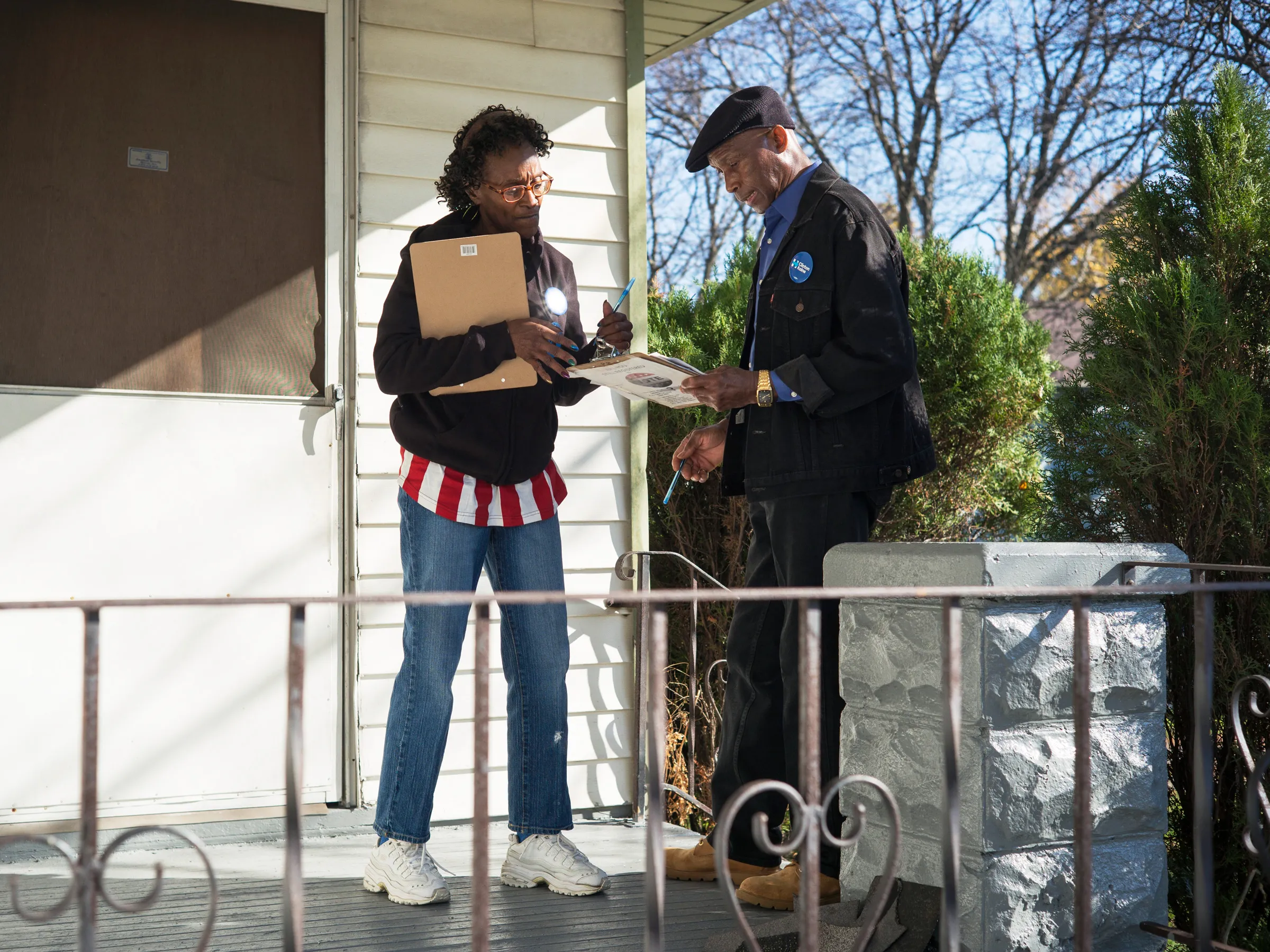
Through most of high school, I thought that the only way to get involved politically was through protests and online movements. It wasn’t until senior year that, after a conversation with a mayoral candidate in my hometown, that I realized I could help make big changes at the local level.
That year, the ten-term mayor decided not to run for re-election, which prompted five vastly different candidates to run. I was seventeen at the time, and I was frustrated that I couldn’t get involved by voting. Rather than sulking about, I reached out to one of the candidates, Katjana Ballantyne, who I most aligned with politically and would have voted for if given the chance. The advice she gave me was closely followed, and I think her answers could serve as good tips for all young people, especially those who aren’t yet able to vote.
First, she told me to request a sign for my front yard through her campaign. I was initially skeptical that it would work, but I did it anyway. Though it doesn’t appear to be the most helpful way to get out the vote, it appears to play a minor role. According to a group of researchers headed by Columbia University political science professor Donald Green, yard signs have been found to alter local and state races by “somewhere between 1 and 2 percentage points on average.” It’s far from an “earth-shattering total,” Green reports, but it can certainly be the deciding factor in races that are close. More yard signs could have cost Lauren Boebert and Ted Cruz wins in their most recent congressional elections, and may have helped Mayor Ballantyne win the election, which she took by a 1.4% margin.
Second, she offered me a timeslot to canvas for her. I absolutely hated this idea as I was taught to slam the door on canvassers (and just about anybody else who knocked on the door), so I fully expected the same to happen to me. As a socially anxious person, I did not think I’d be able to handle that happening to me. Surprisingly, there were only a few people who did that, which greatly eased my nerves. Getting to canvas was the single event that solidified my lifelong interest in politics. It was incredibly rewarding to meet with members of my community face-to-face. Many of them were not aware that the incumbent was not running for re-election and pledged a vote. Even meeting with people who did not plan to vote for Ballantyne was gratifying because I still felt like I was helping move the democratic process along a little.
It is incredibly important for all young people to get involved politically, but I think there needs to be a stronger emphasis on getting people under eighteen a role in elections. I was not taught about the significance of yard signs, canvassing, phone banking and grassroots donations in general, let alone that I could get involved as a teenager. did not realize that the incumbent was not running, was very rewarding. If this was taught on an educational level, it would make people more inclined to vote in all elections when they are legally allowed to, which would greatly impact the results of elections as Gen Z overwhelmingly votes for Democratic nominees. This speaks to a different issue, as well, in that civic courses are massively lacking in middle and high school curriculums, which prevents young people like myself from knowing exactly how they can and should get involved.

When I first saw the title of your blog post I must admit I was a little confused. In my head, ‘Non-Voting’ and ‘Youth Involvement’ are two terms that shouldn’t be strung together in a sentence, so I was intrigued and clicked on your post. I share in your initial skepticism toward yard signs. Yard signs for me have always seemed performative at best and at worst asking for trouble if your neighbors take offense to your chosen candidate.
The fact that you stepped out of your comfort zone, working as a canvasser at seventeen is beyond commendable and was nice reading how rewarding and insightful your experience was. I honestly wasn’t all that shocked that while canvassing you encountered many people within your local community who were completely unaware that Somerville’s mayor wasn’t seeking reelection. I think in general many Americans lack political knowledge. I am sure if you polled a thousand Americans and asked them to name the two senators representing the state they lived in and the name of the House member representing the district they live in, most wouldn’t even be able to provide you with one name, let alone two.
I absolutely agree with your argument that information on how teens can get politically involved within their local community needs to be shared in schools and also agree that a lack of civic education in the K-12 system in the United States has played a big role in the apathy towards voting and getting involved through other avenues among young Americans.
This is an incredibly important perspective on the importance of voter awareness regardless of age and registration status. People under the age of 18 are interested in politics and look forward to participating through voting. But lack of education and knowledge about candidates and election dates hold people back from exercising their rights as citizens. This is a great example of how young people take the initiative to be involved and only need support to bring more awareness to voting. And it was also interesting to read about the effectiveness of yard signs. And makes you wonder about what other small deeds can bolster voter registration and awareness.